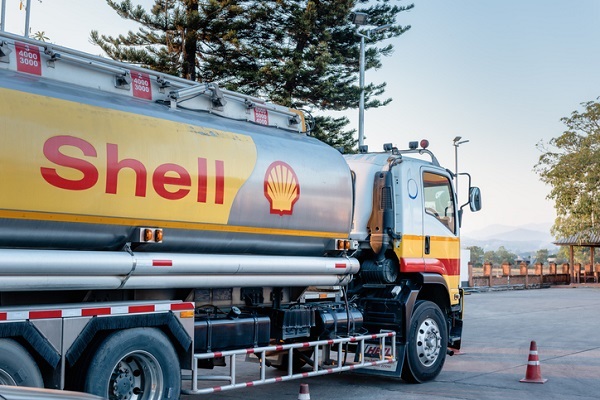ii view: Shell details massive writedown after exiting Russia
7th April 2022 11:44
by Keith Bowman from interactive investor
Aided by higher energy prices, shares for this oil major are up by more than a quarter year-to-date, but leaving Russia is proving expensive. We assess prospects.

First-quarter trading update to 31 March
ii round-up:
Oil major Shell (LSE:SHEL) today detailed plans to write off between $4 billion and $5 billion in the value of its assets following its decision to withdraw from Russia in the wake of its invasion of Ukraine.
That’s higher than the $3.4 billion Shell previously flagged, although the adjustment is not expected to impact pending first-quarter earnings.
Shell shares retreated by more than 2% in UK trading having risen by close to 30% year-to-date. The price of Brent crude oil is up by more than a third during 2022 as many countries have attempted to switch from Russian supplies after it invaded Ukraine. Shares for rival BP (LSE:BP.) are up by 14% year-to-date, while the FTSE 100 index has gained by more than 2%.
- Inflation, dividends and a new commodities supercycle
- Will April be the best month for stocks in 2022?
- How and where to invest £50k to £250k for income
Last month, Shell apologised for buying a heavily discounted consignment of Russian oil as it announced its withdrawal from Russia.
Management highlighted that the prevailing volatility in commodity prices has led to wider ranges in its estimates for the quarter. Nonetheless, first-quarter results are expected to be significantly higher than the final quarter of 2021.
The indicative oil refining margin is forecast to be around $10.23 a barrel compared to $6.55 in the fourth quarter of 2021. Earnings for its Liquefied Natural Gas (LNG) business, including its Renewables and Energy Solutions business, are also expected to be higher.
Results for its Renewables and Energy Solutions business, which have previously been included in its Integrated Gas divisional numbers, will be disclosed separately.
First-quarter results are scheduled for the 5 May.
ii view:
In 2021, the former Royal Dutch Shell changed its name to Shell. It operates in over 70 countries and employs more than 80,000 people. Its Upstream division manages the exploration and extraction of crude oil, natural gas and natural gas liquids. The Downstream business serves more than 30 million customers at around 46,000 retail service stations every day. Up to now, these have been accompanied by its Integrated Gas business including its Renewables and Energy Solutions business, focused on power from renewable and low-carbon sources such as wind, solar, hydrogen and natural gas.
For investors, climate change concerns regarding fossil fuels now ask questions of many institutional investors under Environmental, Social, and Governance (ESG) policies operated by many. US activist investor Third Point also previously questioned whether oil and renewables can sit comfortably together, calling for Shell to be broken up, something which Shell rejected. The dividend, having previously been cut for the first time since the Second World War, is now not what it once was.
On the upside, a major gain in oil and gas prices since pandemic lows in 2020 has boosted cash flows and allowed Shell to reduce debt. The same recovery and asset sales has also allowed management to refocus on shareholder returns, including previously announcing a further $8 billion of share buybacks. The historic and forecast future dividend yield at over 3% is also not derisory in an ongoing environment of low if rising interest rates. In all, and given the importance of oil and gas to the world economy which events in Ukraine have recently underlined, Shell looks to remain deserving of its place in a diversified investment portfolio.
Positives:
- Geographically diverse operations
- A focus on shareholder returns
Negatives:
- High competition for renewable energy assets
- The weather can raise operational challenges
The average rating of stock market analysts:
Buy
These articles are provided for information purposes only. Occasionally, an opinion about whether to buy or sell a specific investment may be provided by third parties. The content is not intended to be a personal recommendation to buy or sell any financial instrument or product, or to adopt any investment strategy as it is not provided based on an assessment of your investing knowledge and experience, your financial situation or your investment objectives. The value of your investments, and the income derived from them, may go down as well as up. You may not get back all the money that you invest. The investments referred to in this article may not be suitable for all investors, and if in doubt, an investor should seek advice from a qualified investment adviser.
Full performance can be found on the company or index summary page on the interactive investor website. Simply click on the company's or index name highlighted in the article.